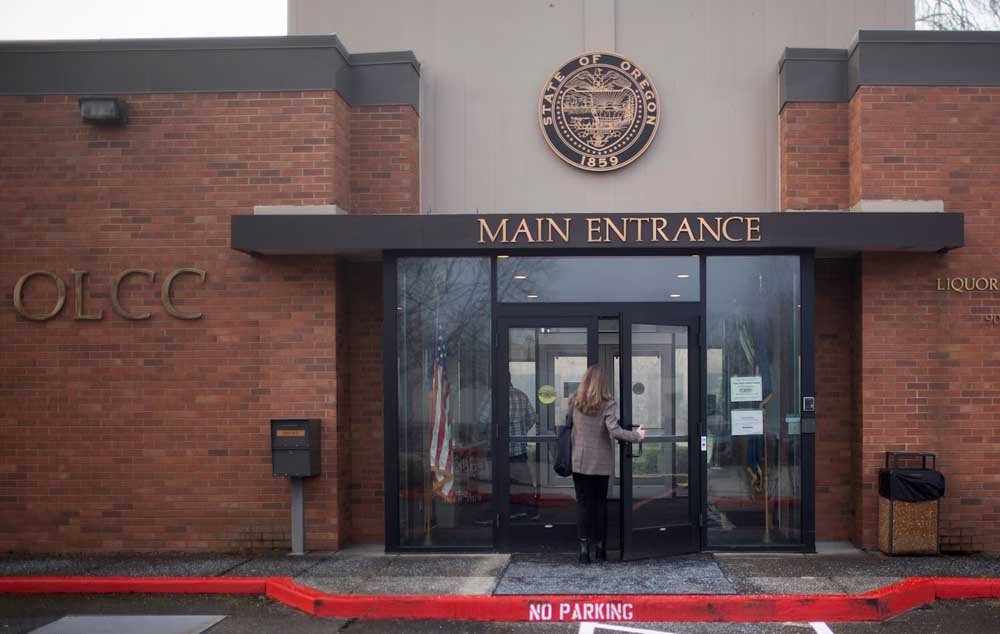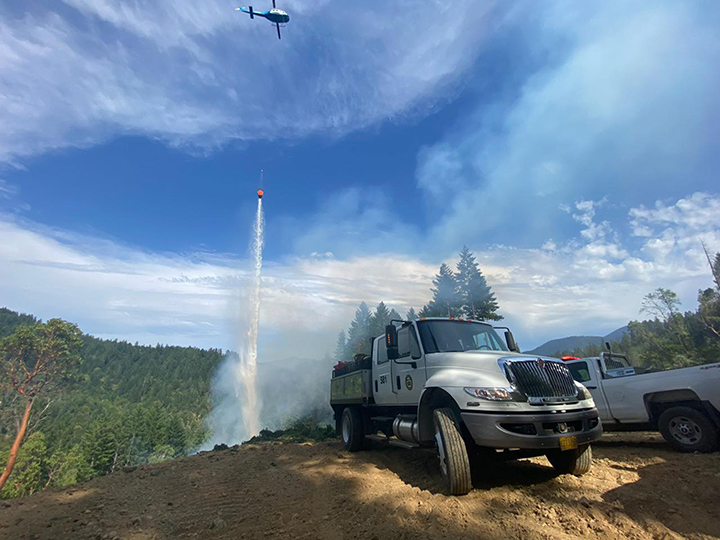State: No criminal charges for OLCC managers who set aside rare bourbon
Published 12:45 pm Monday, May 13, 2024

- The Oregon Department of Justice on Monday said it would not pursue criminal charges against the Oregon Liquor and Cannabis Commission director and other managers who used their positions to access prized Kentucky bourbon.
The Oregon Department of Justice on Monday said it would not pursue criminal charges against the Oregon Liquor and Cannabis Commission director and other managers who used their positions to access prized Kentucky bourbon.
The Justice Department’s 18-page report on its investigation underscored challenges state investigators encountered: Investigators weren’t able to locate anyone who could identify specific OLCC employees who had completed particular purchases, sales records at one store where many of the transactions took place were no longer available and bank records did little to confirm specific sales of the Kentucky bourbons at the heart of the inquiry.
The announcement comes nearly a year and a half after Justice Department lawyers opened the investigation at Gov. Tina Kotek’s request.
In a letter to Kotek, Deputy Attorney General Lisa Udland emphasized that the agency limited its review to possible crimes and did not “separately address whether the conduct of any OLCC employee violated Oregon’s civil ethics laws.”
Udland said documents and reports resulting from the Justice Department’s “extensive criminal investigation” will be available to the Oregon Government Ethics Commission, which opened its own review last year.
The Justice Department’s Criminal Justice Division launched its investigation in February 2023, interviewing more than 40 people and reviewing more than 10,000 pages of OLCC records. Lawyers also reviewed records from the state’s regulated liquor stores and distributors.
The Justice Department’s report notes that lawyers for the state successfully fought in court to obtain access to personal bank records of some OLCC employees, though the report doesn’t say who.
The report did not include the names of anyone under investigation.
It notes that investigators tried to interview the OLCC employees whose conduct was the subject of a human resources investigation into the diversion of bourbon. Each declined to participate, the report noted.
“(I)n light of our responsibility to prove each element of a criminal offense beyond a reasonable doubt and the sufficiency of the evidence currently available to us, we have determined that criminal charges are not warranted,” the report notes.
Last year, an internal investigation found a half-dozen managers – including former longtime executive director, Steve Marks, and his deputy – had used their positions to secure bottles of Pappy Van Winkle and other premium bourbons for themselves. Marks and the others said they bought the bottles to keep or give as gifts.
All were reprimanded and no longer work for the OLCC, either because they were fired or they left.
Investigators spoke with a distribution center manager who reported that she routinely sent bottles of liquor to stores at the request of OLCC employees who would then go to those stores to buy the products. She said she believed such arrangements were a “permitted agency practice” at the time.
Some of those requests pertained to high-demand liquors, the employee told investigators. The staff person provided a general description of the practice and the names of employees who took part but was “unable to provide details of a specific instance where a requested product was routed for a particular OLCC employee.”
Investigators corroborated the woman’s general account but “were again unable to locate any person who could identify a specific OLCC employee who arranged and completed a particular transaction.”
The OLCC has since cracked down on the practice and now prohibits employees from setting aside bottles for themselves and calls for violators to be reported to the governor and the Oregon Government Ethics Commission.
State investigators attempted to track liquor as it moved from the OLCC warehouse, through liquor stores and to individual buyers. One liquor store in particular, investigators learned, was “often used to facilitate liquor purchases by OLCC employees.”
But that effort also reached a dead-end due in part to a change of ownership in the store and the destruction of historic sales records once the ownership transaction was complete, the report noted. Investigators spoke with employees of the previous owner who also could not recall details of any sales transactions involving OLCC employees.
The report notes that investigators attempted to track the sales of specific highly sought-after liquor, using bank records from more than 20 financial institutions “related to the accounts of certain OLCC employees, including individuals who were subjects of the OLCC internal investigation.”
Those records showed OLCC employees had made liquor purchases, however, investigators “were unable to identify any liquor purchase that was directly related to a requested transfer” of bottles of scarce bourbons, according to the report.
The report does not touch on allegations that at least one former OLCC employee filled lawmakers’ requests for liquor. The OLCC’s internal inquiry did not make clear whether the requests involved popular and scarce bourbons produced by Buffalo Trace Distillery in Frankfort, Kentucky, and sold under the name Pappy Van Winkle that otherwise could go to liquor stores.
The conclusion of the criminal investigation clears the way for the ethics review to proceed; state ethics officials paused the inquiry while the criminal investigation continued..
Investigators with the ethics commission last year carried out preliminary reviews of each employees’ conduct, finding they had potentially violated multiple state ethics rules.
The review found information to suggest the former OLCC managers had used their positions for financial gain and to “avoid financial detriment” when they arranged to buy bottles of Pappy Van Winkle bourbon and other bourbons sold in limited quantities.
Investigators also found possible violations of a rule that “prohibits a public official from furthering or attempting to further their personal gain by using confidential information” they obtained through the course of their work. Investigators say the OLCC managers knew about the potential for leftover bottles from the state’s drawings that give members of the public a shot at buying the scarcest liquors.







